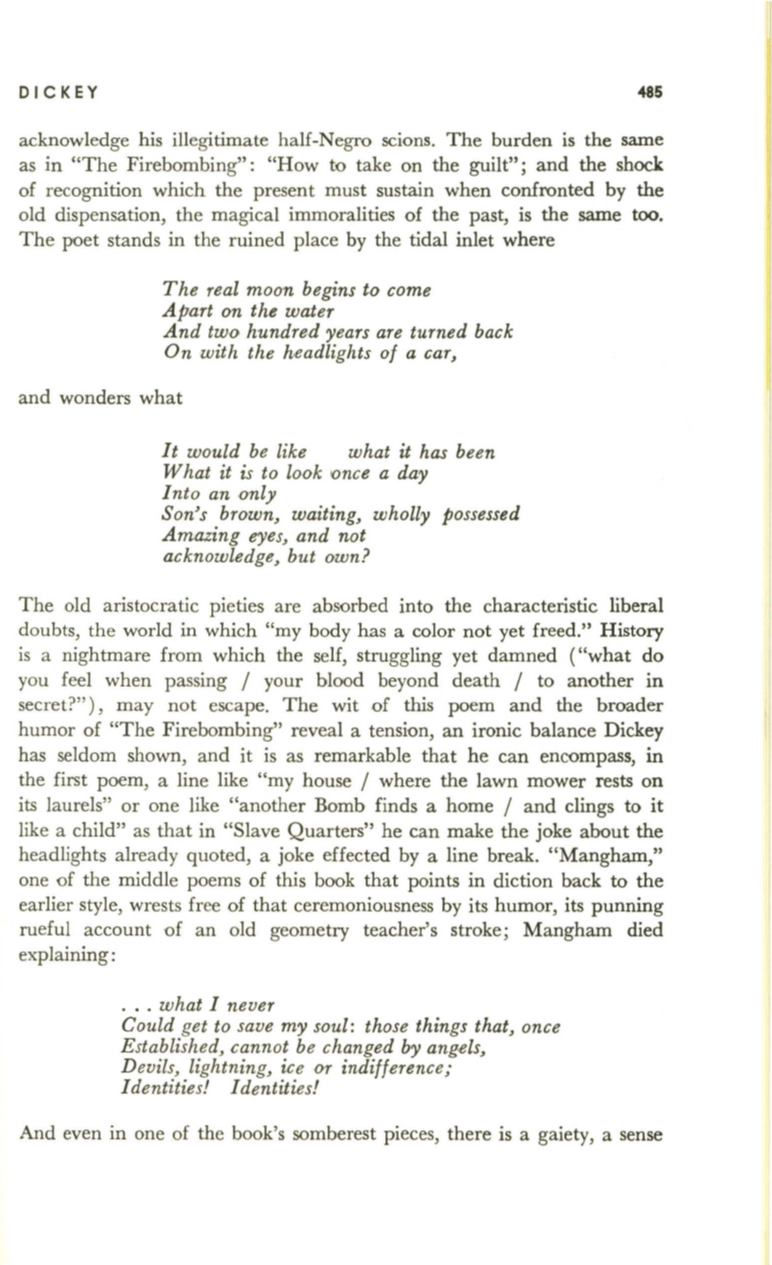
DICKEY
485
acknowledge his illegitimate half-Negro scions. The burden is the same
as in "The Firebombing": "How to take on the guilt"; and the shock
of recognition which the present must sustain when confronted by the
old dispensation, the magical immoralities of the past, is the same too.
The poet stands in the ruined place by the tidal inlet where
The real moon begins
to
come
Apart on the water
And two hundred years are turned back
On with the headlights of a car,
and wonders what
It would be like
what it has been
What it is to look 'Once a day
Into an only
Son's brown, waiting, wholly possessed
Amazing eyes, and not
acknowledge, but own?
The old aristocratic pieties are absorbed into the characteristic liberal
doubts, the world in which "my body has a color not yet freed." History
is a nightmare from which the self, struggling yet damned ("what do
you feel when passing / your blood beyond death / to another in
secret?"), may not escape. The wit of this poem and the broader
humor of "The Firebombing" reveal a tension, an ironic balance Dickey
has seldom shown, and it is as remarkable that he can encompass,
in
the first poem, a line like "my house / where the lawn mower rests on
its laurels" or one like "another Bomb finds a home / and clings to it
like a child" as that in "Slave Quarters" he can make the joke about the
headlights already quoted, a joke effected by a line break. "Mangham,"
one of the middle poems of this book that points in diction back to the
earlier style, wrests free of that ceremoniousness by its humor, its punning
rueful account of an old geometry teacher's stroke; Mangham died
explaining:
...
what I never
Could get to save my soul: those things that, once
Established, cannot be changed by angels,
Devils, lightning, ice or indifference;
Identities! Identities!
And even in one of the book's somberest pieces, there is a gaiety, a sense


